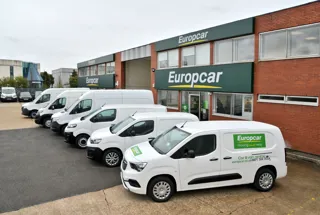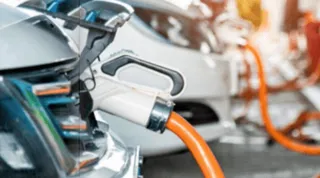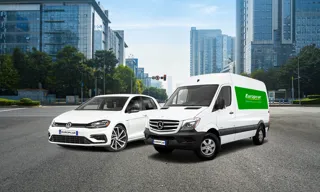By Clive Forsythe, commercial director at Europcar Mobility Group UK
Customer convenience is the first priority for any brand, and the B2B market is no exception. The industry has spent years honing its offering to ensure that drivers are not inconvenienced when their vehicle is due for an MOT or service. A replacement for the duration is offered and delivery and collection provided so that the motorist spends as little time as possible without a car or van.
But has that model kept up to date with the pressures of today’s marketplace?
First of all there’s the issue of vehicle supply. No one can be in any doubt that access to new vehicles is currently very limited. And is likely to remain the case for much of 2022.
Tying up vehicles for one or two day rentals which actually in reality takes vehicles out of the market for three or four days just doesn’t make sense. A company could find that where an employee needs a car or van for several weeks can’t be fulfilled simply because vehicles are tied up on short-term rentals.
And this problem is exacerbated when a rental is extended for a day or two without any advance notice. I always marvel at the fact that rental seems to be the only market where the customer can extend the booking without any notice. Imagine if you tried to do the same with a hotel room booking.
Equally important is the environmental impact. Even with recent innovations in the use of electric cars and scooters for delivery drivers, a delivery and collection involves at least two vehicles every time. That’s double the mileage, double the emissions. And double the number of drivers required too which, given the current resource restrictions all service businesses are facing, is another challenge to the short-term delivery and collection model.
The other factor is the changing working model. Hybrid working – with a day or two in the office per week and the rest of the days working from home - is becoming commonplace and with it comes more flexibility. Dropping off the car at the garage for an MOT or service and then using public transport to get home makes sense. It just requires planning.
I believe the root of the problem is that today’s company car policies were written when everyone was in the office, every day; and where vehicle supply was plentiful. Keeping drivers on the road was the primary focus – without much attention to the cost, to company budgets and the environment.
We’re hearing that many drivers simply don’t feel comfortable having to make a choice between convenience and the environment. How they are supported when they need to get their vehicle serviced or MOT’d is an area where they can make a difference. It just needs a new way of thinking.
It’s all about the planning. For example, company car drivers that have a second family car could drop off the vehicle at the weekend and use the family car for the return journey.
Other mobility solutions – such as public transport and direct access corporate car sharing solutions accessible hourly or daily – could also take the pressure off cost and the environment.
Indeed, businesses that are starting to introduce mobility budgets – giving employees the freedom to choose the best form of transport for each journey – could be instrumental in changing the thinking on short-term delivery and collection.
The bottom-line is that the price of short-term rental with delivery and collection is out of kilter with the true cost, with the result that some providers have actually exited the market. And that means even more pressure on vehicle supply.
If super short-term rental was priced at a level that truly reflected the cost to the provider it would probably drive different decisions that would actually deliver benefits for all.




















Login to comment
Comments
No comments have been made yet.